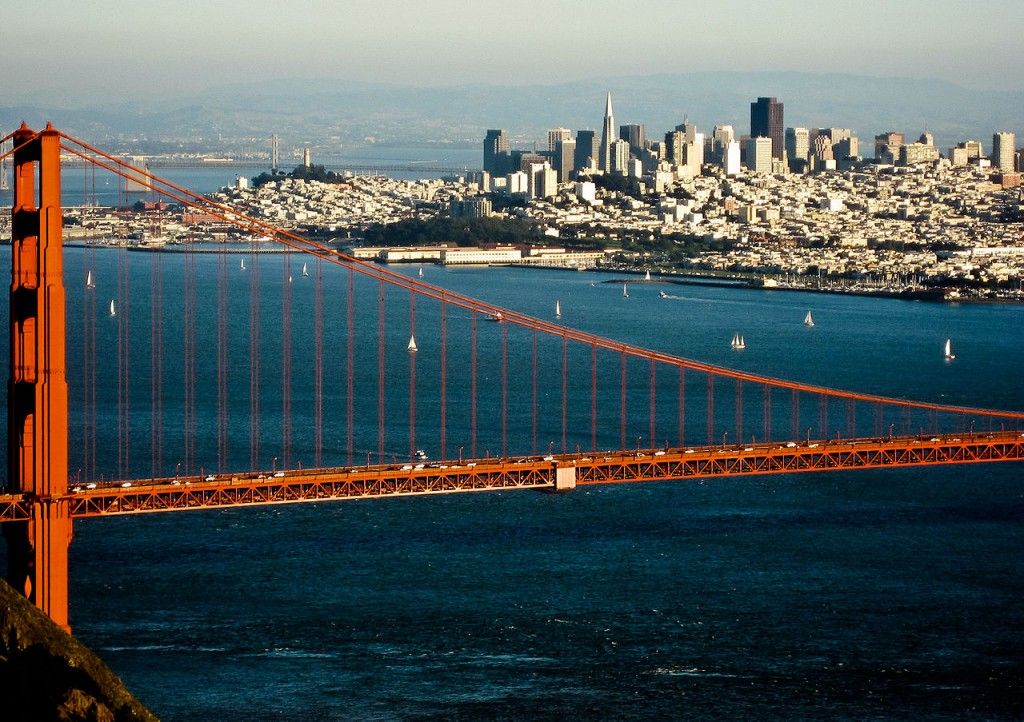Four voter-approved measures in legal limbo in San Francisco, Oakland
by Chris Reed | April 22, 2019 5:54 pm

A confusing 2017 California Supreme Court ruling[1] about the threshold of approval for local ballot measures that are qualified for the ballot through citizen-led signature-gathering efforts – as opposed to being placed before voters by local officeholders – is causing major uncertainty in the Bay Area.
In the case of California Cannabis Coalition v. the City of Upland, the state high court appeared to suggest that citizen-qualified tax or fee measures needed only a simple majority for approval, while others required two-thirds support. But the court did not offer a definitive statement. Many legal experts questioned how justices came up with a new interpretation of 1978’s Proposition 13 [2]and 1996’s Proposition 218[3], which generally imposed a two-thirds requirement for voter approval of local taxes.
This has created uncertainty around three measures in San Francisco and one in Oakland that were approved by strong majorities of voters – but not by two-thirds.
One city attorney says majority OK; other says two-thirds needed
Last week, the Harvard Jarvis Taxpayers Association, the California Business Roundtable and the California Business Properties Association launched[4] a legal challenge to San Francisco’s Proposition C. It is a complicated measure that imposes a new tax on businesses with more than $50 million in gross receipts. Some industries are charged 0.175 percent, while others pay 0.69 percent – nearly four times as much. This is on top of San Francisco’s existing gross receipts tax on companies with $1 million or more in gross receipts.
Relying on City Attorney Dennis Herrera’s interpretation of the 2017 California high court ruling, the city has treated the new tax as valid despite its November passage with less than a two-thirds majority. Proposition C is expected to generate at least $300 million a year for homeless programs.
Herrera holds the same position on two measures approved by San Francisco voters last June. One imposed[5] an annual parcel tax of $298 to help increase teacher salaries. The other raised taxes[6] on some commercial rents to fund child care and education programs.
In interviews, Herrera has offered explanations for his position that seem more populist than rooted in any broader legal theory about how California direct democracy should function. He’s said voters should be able to impose tax hikes with simple majorities[7].
In Oakland, a divided City Council last week decided not to levy an annual $198-per-house, $135-per-apartment annual parcel tax in 2019. The parcel tax was passed by voters as Measure AA[8] in November. It was expected to generate as much as $900 million for education programs over 30 years. While two council members wanted to begin collecting and spending the funds immediately, a council majority ended up heeding City Attorney Barbara Parker, who wrote in the official voters guide that two-thirds support was necessary for passage.
S.F. unruffled by loss of city’s highest-grossing firm
By far the most controversial of the four measures in legal limbo is Proposition C. It was opposed by Mayor London Breed and Twitter co-founder Jack Dorsey[9] not just because it could be seen as creating a hostile business climate but because the measure would fund homeless programs without setting up metrics to determine what worked and what didn’t.
One huge multinational corporation made plain its unhappiness with the new levy. On Nov. 30, 11 days after a CalWatchdog report[10] anticipating the decision, pharmaceutical giant McKesson Corp. announced it was relocating[11] its headquarters from San Francisco to a Dallas suburb. The loss of McKesson – by far the highest-grossing San Francisco company, the second-largest in California after Apple and the sixth-largest in the U.S. – appeared to vindicate Breed’s and Dorsey’s warnings.
But despite McKesson’s exit and huge problems with housing and homelessness, San Francisco officials are much more upbeat than those in elsewhere in Silicon Valley about the sustainability of the tech boom. From 2010 to 2017, while tech job growth began to slow in the region, the number of tech jobs in San Francisco went from about 21,000 to 84,000.
A San Francisco Chronicle analysis[12] noted that no large tech firm had left the city in recent years. Such companies, development analyst Colin Yasukochi told the Chronicle, are “in the innovation business. Being able to attract the best and brightest minds is going to give them a competitive advantage when it comes to innovating new products and services.”
- ruling: https://law.justia.com/cases/california/supreme-court/2017/s234148.html
- Proposition 13 : https://ballotpedia.org/California_Proposition_13,_Tax_Limitations_Initiative_(1978)
- Proposition 218: https://ballotpedia.org/California_Proposition_218,_Voter_Approval_Required_Before_Local_Tax_Increases_(1996)
- launched: https://www.bizjournals.com/sanfrancisco/news/2019/04/15/challenge-filed-invalidate-sf-prop-c-homeless-tax.html
- imposed: https://www.spur.org/voter-guide/san-francisco-2018-06/prop-g-schools-parcel-tax
- raised taxes: https://www.spur.org/voter-guide/san-francisco-2018-06/prop-c-commercial-rent-tax-child-care-and-education
- simple majorities: https://www.sfchronicle.com/politics/article/SF-City-Attorney-Herrera-seeks-court-validation-13568746.php
- Measure AA: https://ballotpedia.org/Oakland,_California,_Measure_AA,_Education_Parcel_Tax_Charter_Amendment_(November_2018)
- Jack Dorsey: https://sf.curbed.com/2018/10/22/18009508/twitter-ceo-dorsey-prop-c-homeless-tax-election
- report: https://calwatchdog.com/2018/11/19/second-largest-ca-firm-may-be-preparing-for-move-to-texas/
- relocating: https://www.marketwatch.com/story/mckesson-moves-hq-to-las-colinas-texas-from-san-francisco-2018-11-30
- analysis: https://www.sfchronicle.com/business/article/San-Francisco-s-Prop-C-Some-worry-that-it-13334571.php
Source URL: https://calwatchdog.com/2019/04/22/four-voter-approved-measures-in-legal-limbo-in-san-francisco-oakland/